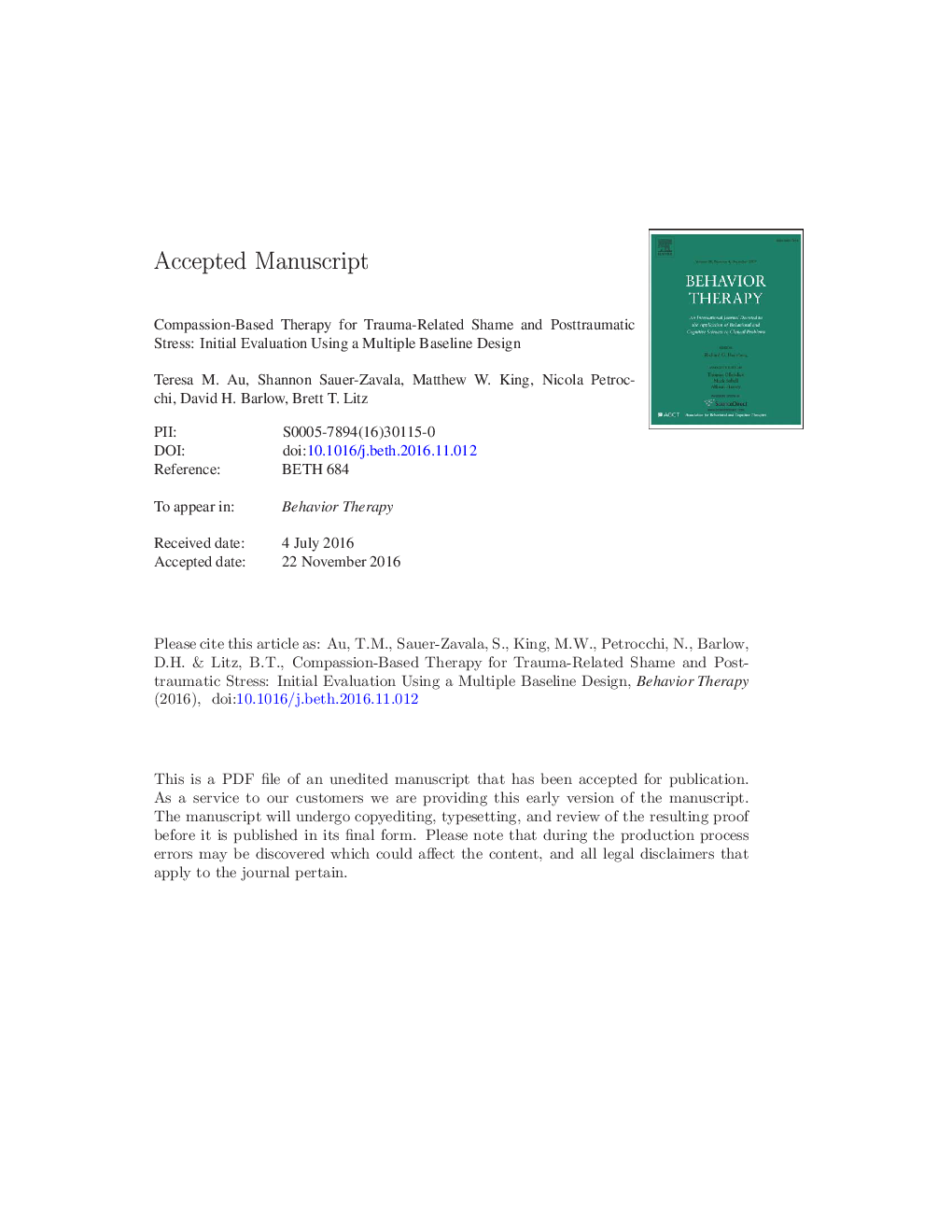ترجمه فارسی عنوان مقاله
درمان مبتنی بر شفقت برای شرم و عوارض جانبی تروما و استرس پس از سانحه: ارزیابی اولیه با استفاده از یک طرح ابتکاری چندگانه
عنوان انگلیسی
Compassion-Based Therapy for Trauma-Related Shame and Posttraumatic Stress: Initial Evaluation Using a Multiple Baseline Design
| کد مقاله | سال انتشار | تعداد صفحات مقاله انگلیسی |
|---|---|---|
| 123983 | 2017 | 41 صفحه PDF |
منبع

Publisher : Elsevier - Science Direct (الزویر - ساینس دایرکت)
Journal : Behavior Therapy, Volume 48, Issue 2, March 2017, Pages 207-221
ترجمه کلمات کلیدی
تروما اختلال استرس پس از سانحه، شرم آور رحم و شفقت - دلسوزی، طراحی آزمایشی تک پرونده،
کلمات کلیدی انگلیسی
trauma; posttraumatic stress disorder; shame; compassion; single-case experimental design;

